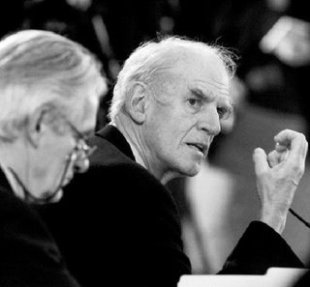in response to Artur Rosman of Cosmos the in Lost. I’m only about half way through but this is the impression I’m getting, confirmed by book group members who meet regularly in what we are calling a Charles Taylor Accountability Group to eat Sim Johnson’s brie, and try to figure out what Taylor’s getting at:
Secular for Talyor isn’t about being non-Christian or non-religious, it’s about having a public sphere where there are all kinds of menu options, of which Christianity is one. He doesn’t necessarily think that it’s bad for Christians to live in a secular age, or that we should be trying in a revanchist way to hike back to the Age of Faith. He’s not pulling an “it’s all gone downhill from the 13th century.” And he actually seems to see a lot of the religiosity of various bits of the middle ages as pagan, and (by implication, although he’s very good at keeping his own opinions out of things) problematic for genuine Christianity.
There’s another thing that’s going on too, which we haven’t talked much about at the brie-fueled jam sessions. (If I bring actual jam to the next one I suppose they could become jam-fueled brie sessions. Perhaps I will, in a nod to Rosman’s earlier Dark Helmet reference, although given this blog’s tagline I shouldn’t be encouraging anyone to “Jam the transmission.”)
That other thing is the fact that along with the religious secularity Taylor talks about, and the massive pluralism that he describes as a “nova” of new philosophies or ways to understand the world (kicked off in the 17th c), there’s a kind of… you might almost call it a philosophical secularity. Or philosophical loss of coherence.
From what I can tell (and here’s where I stick my standard disclaimer about really feeling not well read enough in the primary sources to talk about this, and then my standard secondary disclaimer about how maybe I actually did read a lot more than I think I did, in college), a lot of people who discover what might be called the Great Tradition in political philosophy love the coherence of the Classical philosophical story that existed prior to Descartes: it was all one big philosophical project, building on itself, moving forward in precision, maybe, but not in the sense of progress-as-rejection-of-the-past. Especially Christians who see continuity between classical and Medieval philosophy, who see providence in Plato’s ability to write what he wrote, see this coherence unambiguously.
But non-Christian classicists see it too, even if they have to pretend that later Christian philosophers who drew on Classical sources were more classical than they were Christian, and couldn’t possibly have believed all that about Jesus rising from the dead.
We are– as Taylor describes it– now at a point of massive philosophical pluralism– that’s why you get textbooks of philosophy organized by philosopher, each of whom spawned his own system which doesn’t necessarily relate to any of the others.
But this may be another reason that secularity, in Taylor’s sense, isn’t a bad thing. There’s something unChristianly tidy about a lot of scholastic philosophy, and so anything that shakes that certainty, shakes our smug tendency as Christians to think that we have a system that started with Plato and continued uninterrupted through to Aquinas, might be good.
And certainly anything that shakes the smug certainty of the medieval and early modern non-Christian (whether explicitly or otherwise) classicists who enjoyed their Platonic playground, enjoyed feeling superior to the rabble of believers, enjoyed their “enlightenment” the more because their brothers were still in the cave looking (as they believed) at shadows… almost anything that smacks THAT kind of certainty upside the head is probably a good thing.
Almost anything. I still somehow feel like Platonism is a step up from nihilism, the nihilism that you sometimes get with massive pluralism in philosophy. It is, it is, it is better. It’s just not going to save you.
P.S. You may have noticed that there was in fact no Harry Jaffa reference in this blog post. That’s ’cause I redacted it. 🙂


